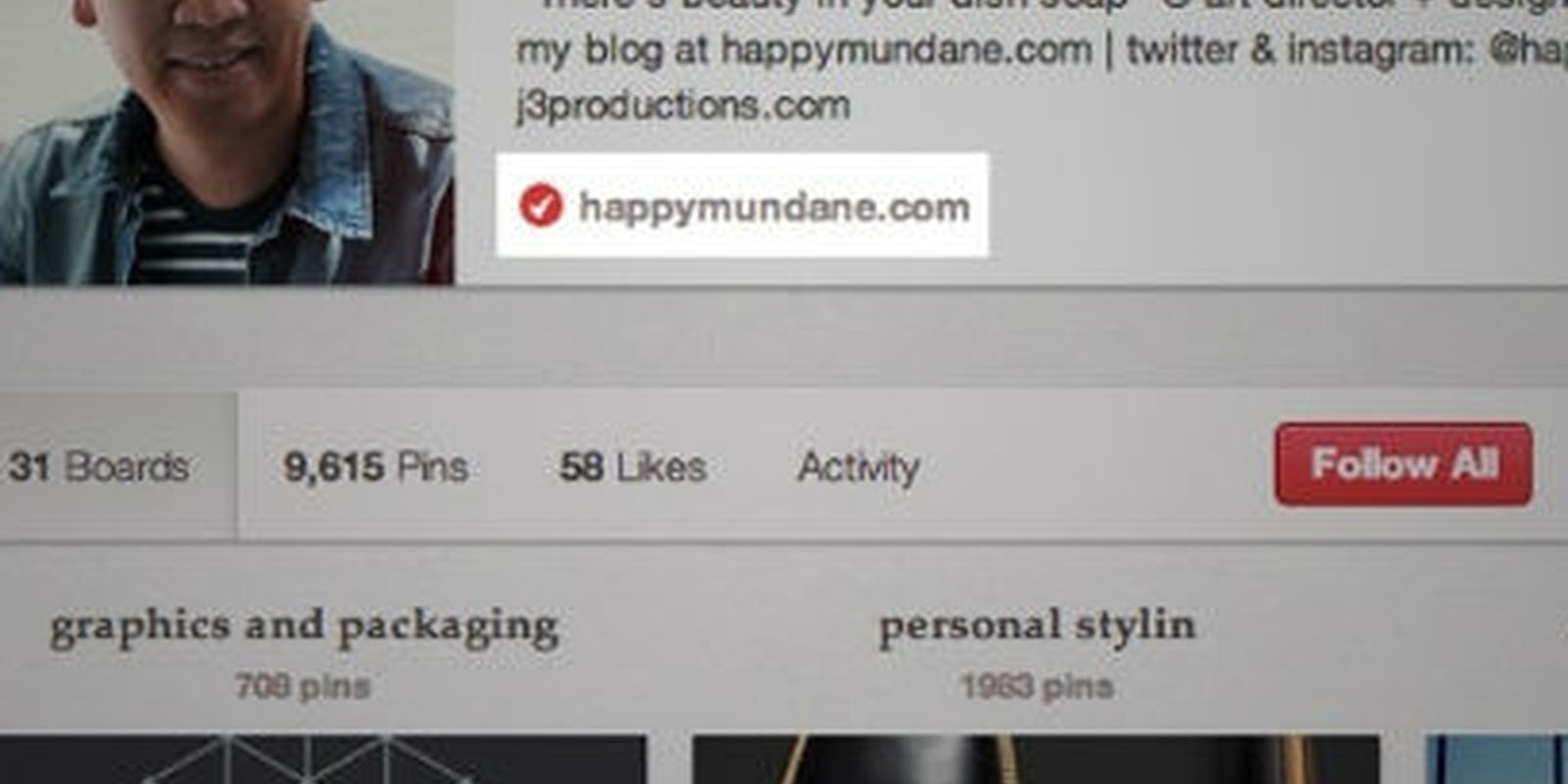You can call yourself whatever you want on Pinterest, which is fun until it gets confusing.
Does this account belong to the real Yoko Ono, or does this one? And while nobody is going to confuse this woman with Ikea, her ability to claim the furniture company’s name shows that brand squatting is a real problem on Pinterest.
Starting Thursday, however, Pinterest has made a significant push toward solving the problem. The company has just rolled out a feature called Website Verification, which lets users confirm whether or not they own the site connected to their profile. Pinterest’s official blog explains:
“When your website is verified, people will see a checkmark next to your domain in search results. They will also see the full website URL and checkmark on your profile.”
While the feature will help to confirm which accounts really do belong to celebrities and brands, that’s the end of its similarities to Twitter’s Verified Accounts feature.
Unlike Twitter’s verification system, anybody can make use of this one whether they are a big-name user or not. As long as you own a top-level domain (that’s yourname.com, not facebook.com/yourname,) you can obtain that little red checkmark on your profile.
Pinterest has dealt with imposters on the site in various ways in the past. When Mitt Romney’s campaign team complained about a Mitt Romney parody, Pinterest redirected the profile to a page titled “Fake Mitt Romney.” Other pages like pinterest.com/FedEx, which previously belonged to people unrelated to the brand, were transferred to the trademark owners upon the brand’s request. Website Verification may streamline this process.
For assistance in setting up the new feature, check Pinterest’s support page on the topic.
Photo via Pinterest


